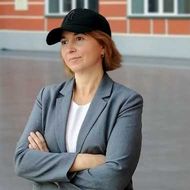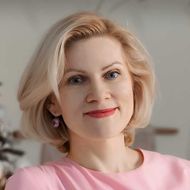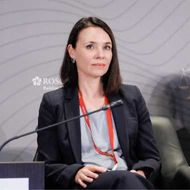- A
- A
- A
- ABC
- ABC
- ABC
- А
- А
- А
- А
- А
-
School
- About the School
- Research
- Academics
- "HSE University Journal of International Law"
-
Research and Study Laboratories and Groups
-
Research and Study Laboratories
-
Research and Study Groups
-
- Research and Methodology Units
- HSE Research Seminar on International Law
- Ph.D. Seminar
- Undergraduate track ‘International Law’
-
Projects
-
Status: active
- Applied project «Philip C. Jessup international law moot court competition training 2023-2024»
- Applied project 2024-2025 “Preparation for the Willem C. Vis Moot Competition, season 2024-2025”
- Fundamental Research Project "Legal Mechanisms for Overcoming Inequality"
- Participation of Young Lawyers as Clerks of the International Commercial Arbitration Court at the Chamber of Commerce and Industry of the Russian Federation
- Research project: International Competition ‘Dispute Resolution in the EAEU–2024’: Preparation and Participation of the Faculty of Law's Team
-
Status: completed
-
- Staff Members
-
Educational programs
- Bachelor's Programmes
- Master's Programmes
- Doctoral School of Law
Moscow, 3 Bolshoy Trekhsvyatitelsky Pereulok, rooms 227, 228b

E-mail: svetlana.smirnova@hse.ru
Located at a crossroads of global, regional, and national interests, contemporary international law affects almost all spheres of society. The School of International Law keeps pace with significant international events and legal adjudication in order to provide hands-on education that prepares future lawyers and legal scholars for the demands of the current legal landscape. The School is at once a ‘think tank’ that provides expert analysis and a producer of top legal experts and lawyers in international law.
 The Right to Regulate in International Economic Law: Towards a General Theory with Lessons from the GATS
The Right to Regulate in International Economic Law: Towards a General Theory with Lessons from the GATS
Göttingen: Universitätsverlag Göttingen, 2024.
HSE University Journal of International Law. 2025. Vol. 3. No. 1. P. 115-127.
Vladislav Starzhenetskiy, Sabina Geydarova.
In bk.: Новые горизонты международного арбитража. Выпуск 8.. Iss. 8. 2025. Ch. 17. P. 439-461.
 MANDATORY CORPORATE HUMAN RIGHTS DUE DILIGENCE MODELS: SHOOTING BLANKS?
MANDATORY CORPORATE HUMAN RIGHTS DUE DILIGENCE MODELS: SHOOTING BLANKS?
Rusinova V., Sergei K.
Law. LAW. Высшая школа экономики, 2021

First Ph.D. Seminar
On November 10, 2020 School of International Law launched its first Ph.D. Seminar. Daniil Moshnikov was the first Ph.D. student to make a presentation on the topic of his thesis, which is dedicated to ‘International Law Regulations on Combating the Spread of Infectious Diseases’. He described the methodologies are used in the scholarship and presented his approaches to the problem of insufficient efficacy of the international inter-state co-operation in this field and an institutional crisis of the World Health Organization.
Gleb Bogush, workshop coordinator, Associate Professor:
I hope that this seminar will prove to be helpful to everyone - both Ph.D. students and their supervisors, senior colleagues. Without a healthy criticism (even rather harsh one), exchange of views, “brainstorming” one can hardly count on a full and successful scientific research. I would like to thank Daniil Moshnikov - it is always difficult to be a pioneer, but he did an excellent job!
Vera Rusinova, Head of the School of International Law, professor:
This seminar is thought as a platform for the presentation of ideas and approaches, which crystallize in the framework of the research made by our young colleagues. We invoke for the participation in this seminar experienced researchers with a purpose to provide methodological support to Ph.D. students and give them new impulses for improvement. I would like to express my sincere gratitude to Gleb Bogush for taking on his shoulders the organizational workload and for the realization of this important element of our team-work and to congratulate Daniil Moshnikov with the first approbation of the concept of his research!
Daniil Moshnikov, assistant:
Speaking at a postgraduate seminar was, surprisingly, rather an unusual experience. Despite the fact that all the training of a graduate student is aimed precisely at solving a specific scientific problem, most of these activities are still either general in nature or require a formal progress report. Therefore, it is especially important to hear the opinion of experienced specialists on the merits of your topic, and this is exactly an opportunity that this seminar has provided for me. Now, after I have heard comments on my presentation, I have a better understanding of issues that owe further research and refinement.
Alaa N. Assaf, graduate student:
Today our colleague Daniil shared with us the milestones he achieved in the process of his Ph.D. so far in his last year of the Ph.D. program. Daniil’s thesis is timely and thought provocative, as we rarely encounter those who are pioneering in hypothesizing a general framework for a new International Health Law. The importance of his ideas is further amplified in our current times following the COVID-19 pandemic that illustrated the urgent need for an international regularity regime for state cooperation to fight such threats to humankind that transcends all known borders, material and artificial. The Ph.D. seminar provided the speaker and us, participants, with a unique opportunity to have an engaging experience with new ideas and their entertainment under the supervision of experienced professors in a manner that can further refine our prospect outputs and help to avoid possible research bottlenecks while still in the process of conducting their theses.
- About
- About
- Key Figures & Facts
- Sustainability at HSE University
- Faculties & Departments
- International Partnerships
- Faculty & Staff
- HSE Buildings
- Public Enquiries
- Studies
- Admissions
- Programme Catalogue
- Undergraduate
- Graduate
- Exchange Programmes
- Summer Schools
- Semester in Moscow
- Business Internship
-
https://elearning.hse.ru/en/mooc/
Massive Open Online Courses
-
https://www.hse.ru/en/visual/
HSE Site for the Visually Impaired
-
http://5top100.com/
Russian Academic Excellence Project 5-100
- © HSE University 1993–2025 Contacts Copyright Privacy Policy Site Map
- Edit

